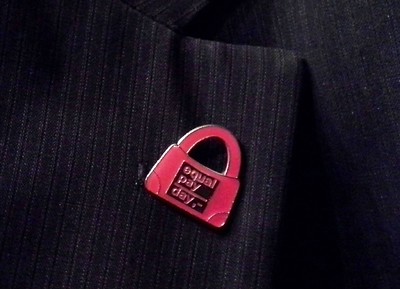Lansing Community College hosted an event this morning marking Equal Pay Day. WCC’s own Dr. Kim Hurns participated in the event. Equal Pay Day is a symbolic day that recognizes the wage gap between male and female workers. The day represents the length of additional time women must work to earn as much as men did in the prior year.
Whether you believe in the wage gap or not, the US Census Bureau does. According to them, Equal Pay Day was on March 15 this year. Wage inequity is a critical issue. There is substantial debate on everything from its existence to the best way to eliminate it.
Discussion is fine, but it does not eliminate gender-based wage inequity. There are many bases for wage inequity – and at least one that community college officers can address. It is the wage inequity that their institutions both create and perpetuate.
Community college administrators can eliminate the academic and occupational programs that lead to low-paying jobs. A community college should never provide, promote or accept programs that cannot generate living-wage employment.
Yet at Lansing Community College, nearly four out of ten people who enroll in LCC classes do not out-earn a high school graduate 10 years down the road. At WCC, 42% of students get no monetary return from taking WCC classes.
Equal Pay Day observances will not eliminate wage inequity
Eliminating that gap would both increase the value of a community college degree and raise women’s wages. Among Michigan’s community colleges, between 38% and 53% of students do not out-earn high school graduates 10 years after enrolling. Women make up most students at community colleges. They disproportionately bear failed educational attempts, worthless degree programs, and biases that direct them toward chronically low-wage work.
People like Dr. Kim Hurns, WCC’s chief academic officer, can terminate programs that do not enable graduates to earn a living wage. People like Dr. Michelle Mueller, WCC’s Vice President of Economic & College Development, can stop developing and authorizing non-credit, corporate welfare training programs that trap people in long-term, low-wage jobs.
These women can do more than talk about wage inequity; they can take concrete steps to eliminate it. But they do not. Worse, by not actively eliminating low-wage occupational degree, certificate and non-credit training programs, these women perpetuate – not eliminate – wage inequity.
Happy (belated) Equal Pay Day, ladies.
Photo Credit: Michael Panse , via Flickr



















